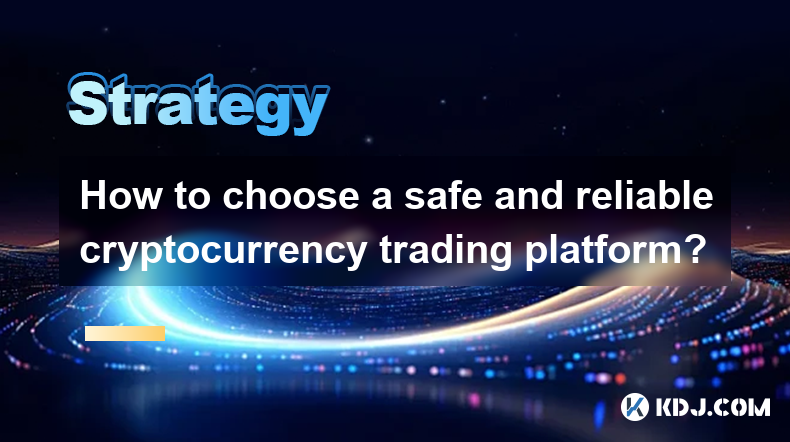-
 Bitcoin
Bitcoin $85,116.5880
-4.13% -
 Ethereum
Ethereum $2,315.9027
-6.90% -
 Tether USDt
Tether USDt $0.9990
0.03% -
 XRP
XRP $2.1842
-5.32% -
 BNB
BNB $611.4012
-2.50% -
 Solana
Solana $137.8915
-3.38% -
 USDC
USDC $0.9999
0.01% -
 Dogecoin
Dogecoin $0.2052
-3.40% -
 Cardano
Cardano $0.6551
-5.03% -
 TRON
TRON $0.2272
-0.86% -
 Chainlink
Chainlink $15.1868
-1.55% -
 Litecoin
Litecoin $122.4656
2.61% -
 Avalanche
Avalanche $22.2937
0.66% -
 Sui
Sui $2.9087
-4.50% -
 Stellar
Stellar $0.2865
-3.04% -
 Toncoin
Toncoin $3.4626
-3.64% -
 Shiba Inu
Shiba Inu $0.0...01437
0.25% -
 UNUS SED LEO
UNUS SED LEO $9.0583
0.11% -
 Hedera
Hedera $0.1972
-0.02% -
 Polkadot
Polkadot $4.8336
1.95% -
 MANTRA
MANTRA $7.2498
-5.08% -
 Hyperliquid
Hyperliquid $20.1457
-2.66% -
 Ethena USDe
Ethena USDe $0.9989
-0.01% -
 Bitcoin Cash
Bitcoin Cash $294.8364
-0.68% -
 Dai
Dai $0.9999
0.02% -
 Uniswap
Uniswap $7.9886
-4.73% -
 Bitget Token
Bitget Token $3.9143
-10.81% -
 Monero
Monero $214.4466
-1.65% -
 NEAR Protocol
NEAR Protocol $3.0444
-0.91% -
 Aptos
Aptos $6.1334
8.88%
What does amplification of trading volume mean?
Amplified trading volume can lead to increased market volatility and price fluctuations, potentially distorting market data and making it challenging for investors to assess asset value.
Feb 27, 2025 at 07:36 am

Key Points of Article
- Understanding Amplification of Trading Volume
- Effects of Amplification on Market Volatility
- How Watchdog Groups Regulate Amplified Volume
- Case Study: Examples of Amplified Trading Volume Incidents
- Tips for Investors Navigating Amplified Trading Volume
What is Amplification of Trading Volume?
Amplification of trading volume occurs when a small number of large trades create the illusion of significant market activity. This can happen when high-frequency traders (HFTs) or market makers use algorithms to execute numerous small trades in rapid succession.
The resulting surge in volume can give the impression of increased investor interest and demand. However, amplified trading volume does not necessarily reflect genuine market movement or underlying demand for the asset.
Effects of Amplification on Market Volatility
Amplified trading volume can lead to increased market volatility and price fluctuations. The sudden increase in trading volume creates an imbalance between supply and demand, which can cause prices to move sharply in either direction.
High levels of amplification can also distort market data and make it difficult for investors to assess the true market value of an asset. This can lead to erroneous trading decisions and increased investor risk.
How Watchdog Groups Regulate Amplified Volume
Regulatory agencies recognize the potential risks associated with amplified trading volume. They have implemented measures to monitor and detect such activities.
- Increased Surveillance: Regulators have increased surveillance of high-frequency trading and market-making activities to identify amplified trading volume patterns.
- Circuit Breakers: In some cases, exchanges and regulators may implement circuit breakers to temporarily halt trading if amplified volume leads to extreme price volatility.
- Penalties: Watchdog groups can impose penalties on market participants who engage in manipulative or deceptive trading practices that amplify volume.
Case Study: Examples of Amplified Trading Volume Incidents
- In 2010, the "Flash Crash" saw the Dow Jones Industrial Average plunge over 1,000 points in just a few minutes, primarily due to amplified trading volume.
- In 2014, the cryptocurrency exchange Coinbase experienced a surge in trading volume due to a software bug that allowed users to execute multiple trades simultaneously, resulting in amplified volume.
- In 2016, the Japanese financial regulator sanctioned several brokerage firms for engaging in deceptive trading practices that amplified trading volume.
Tips for Investors Navigating Amplified Trading Volume
Investors can take steps to mitigate the risks associated with amplified trading volume:
- Be Aware of the Potential: Understand the concept of amplified trading volume and its potential impact on market behavior.
- Monitor Market Dynamics: Pay attention to unusual surges in trading volume and consider external factors that may be influencing the market.
- Use Reliable Sources: Utilize reputable data providers and avoid relying solely on social media or filtered information sources.
- Consider Market Depth: Look beyond headline trading volume and examine market depth to assess the true balance of buying and selling orders.
- Manage Risk: Employ risk management strategies such as stop-loss orders and position sizing to limit potential losses due to amplified trading volume.
FAQs
Q: What are the motives for amplifying trading volume?
A: Market participants may amplify trading volume to:
- Generate profits through arbitrage or high-frequency trading.
- Manipulate market prices or create a false impression of demand.
- Distort market data and make it difficult for investors to make informed decisions.
Q: Can amplified trading volume be detected?
A: Yes, regulatory agencies and exchanges use various methods to detect amplified trading volume, including surveillance systems, data analysis, and market monitoring.
Q: What are the consequences of engaging in amplified trading volume?
A: Engaging in manipulative or deceptive trading practices that amplify trading volume can result in penalties, sanctions, or criminal charges imposed by regulatory authorities.
Disclaimer:info@kdj.com
The information provided is not trading advice. kdj.com does not assume any responsibility for any investments made based on the information provided in this article. Cryptocurrencies are highly volatile and it is highly recommended that you invest with caution after thorough research!
If you believe that the content used on this website infringes your copyright, please contact us immediately (info@kdj.com) and we will delete it promptly.
- Bitcoin price drops to lows not seen since Nov. 11, 2024
- 2025-02-27 12:55:31
- Bitcoin (BTC) Price Drops Below $90K, Experiencing Its Biggest Price Drop
- 2025-02-27 12:55:31
- Bitcoin and Ethereum Are Losing Momentum—Where's the Next Big Move?
- 2025-02-27 12:50:31
- Crypto ATM Fraud Prevention Act aims to crack down on Bitcoin ATM scams targeting seniors
- 2025-02-27 12:50:31
- MicroStrategy CEO Michael Saylor Calls on Jeff Bezos to Use Bitcoin
- 2025-02-27 12:45:32
- Nvidia (NVDA) stock price target raised to $175 as Q4 results beat estimates
- 2025-02-27 12:45:32
Related knowledge

What should beginners pay attention to when buying and selling cryptocurrencies?
Feb 26,2025 at 03:18pm
Key Points of the Article:Understanding the Basics of Cryptocurrency:Defining cryptocurrency and its underlying technologyExploring the different types of cryptocurrenciesChoosing a Cryptocurrency Exchange:Factors to consider when selecting an exchangeComparison of top cryptocurrency exchangesCreating a Cryptocurrency Wallet:Types of cryptocurrency wall...

What are the common risks of cryptocurrency trading? How to avoid them?
Feb 26,2025 at 03:30am
Key Points:Understanding the volatility and price fluctuations of cryptocurrencies.Awareness and avoidance of fraud and scams.Mitigation of hacking risks and secure storage of digital assets.Protection against regulatory changes and tax implications.Education and knowledge enhancement to minimize investment risks.1. Volatility and Price Fluctuations:Cry...

How are the transaction fees for cryptocurrency transactions calculated?
Feb 27,2025 at 03:30am
Key PointsFactors Influencing Transaction FeesCalculation MethodsFee Structure VariationsImpact of Network TrafficRole of Miners and ValidatorsHow are the Transaction Fees for Cryptocurrency Transactions Calculated?The transaction fees associated with cryptocurrency transactions are determined by a combination of factors, each playing a crucial role in ...

What tools or accounts are needed to buy and sell cryptocurrencies?
Feb 25,2025 at 08:00pm
How to Buy and Sell Cryptocurrencies: A Comprehensive GuideKey Points:Understand the different types of cryptocurrency exchanges.Create an account with a reputable exchange.Fund your account with fiat currency or other cryptocurrencies.Place buy or sell orders based on market conditions.Track your trades and manage your portfolio effectively.Tools and A...

How to choose a safe and reliable cryptocurrency trading platform?
Feb 26,2025 at 10:00am
How to Choose a Safe and Reliable Cryptocurrency Trading PlatformNavigating the cryptocurrency trading landscape can be daunting, but choosing a safe and reliable platform is paramount to protecting your investments. Here's a comprehensive guide to help you make an informed decision:Key Points:Assess platform security, regulation, and reputation.Conside...

What are the payment methods for buying and selling virtual currency?
Feb 26,2025 at 03:12pm
Key Points:Understanding the payment methods for buying and selling virtual currency.Exploring different options available for deposits and withdrawals.Identifying security measures and policies related to payment methods.Analyzing the fees and transaction times associated with each payment method.Payment Methods for Buying and Selling Virtual Currency:...

What should beginners pay attention to when buying and selling cryptocurrencies?
Feb 26,2025 at 03:18pm
Key Points of the Article:Understanding the Basics of Cryptocurrency:Defining cryptocurrency and its underlying technologyExploring the different types of cryptocurrenciesChoosing a Cryptocurrency Exchange:Factors to consider when selecting an exchangeComparison of top cryptocurrency exchangesCreating a Cryptocurrency Wallet:Types of cryptocurrency wall...

What are the common risks of cryptocurrency trading? How to avoid them?
Feb 26,2025 at 03:30am
Key Points:Understanding the volatility and price fluctuations of cryptocurrencies.Awareness and avoidance of fraud and scams.Mitigation of hacking risks and secure storage of digital assets.Protection against regulatory changes and tax implications.Education and knowledge enhancement to minimize investment risks.1. Volatility and Price Fluctuations:Cry...

How are the transaction fees for cryptocurrency transactions calculated?
Feb 27,2025 at 03:30am
Key PointsFactors Influencing Transaction FeesCalculation MethodsFee Structure VariationsImpact of Network TrafficRole of Miners and ValidatorsHow are the Transaction Fees for Cryptocurrency Transactions Calculated?The transaction fees associated with cryptocurrency transactions are determined by a combination of factors, each playing a crucial role in ...

What tools or accounts are needed to buy and sell cryptocurrencies?
Feb 25,2025 at 08:00pm
How to Buy and Sell Cryptocurrencies: A Comprehensive GuideKey Points:Understand the different types of cryptocurrency exchanges.Create an account with a reputable exchange.Fund your account with fiat currency or other cryptocurrencies.Place buy or sell orders based on market conditions.Track your trades and manage your portfolio effectively.Tools and A...

How to choose a safe and reliable cryptocurrency trading platform?
Feb 26,2025 at 10:00am
How to Choose a Safe and Reliable Cryptocurrency Trading PlatformNavigating the cryptocurrency trading landscape can be daunting, but choosing a safe and reliable platform is paramount to protecting your investments. Here's a comprehensive guide to help you make an informed decision:Key Points:Assess platform security, regulation, and reputation.Conside...

What are the payment methods for buying and selling virtual currency?
Feb 26,2025 at 03:12pm
Key Points:Understanding the payment methods for buying and selling virtual currency.Exploring different options available for deposits and withdrawals.Identifying security measures and policies related to payment methods.Analyzing the fees and transaction times associated with each payment method.Payment Methods for Buying and Selling Virtual Currency:...
See all articles

















































































